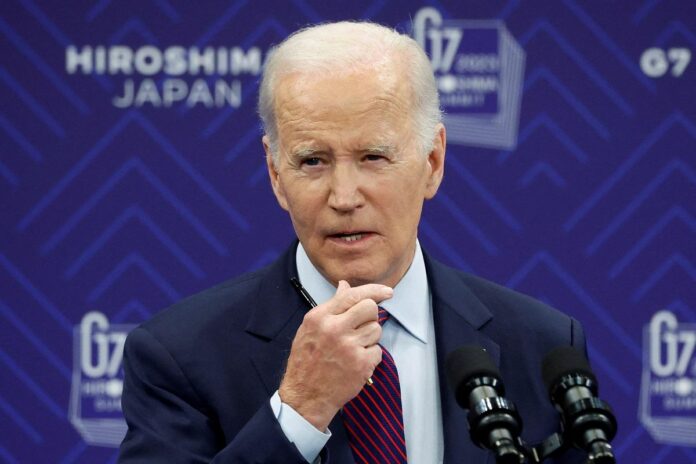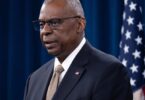HIROSHIMA (Agencies): US President Joe Biden said on Sunday that ties between Washington and Beijing should thaw “very shortly” after the United States shot down a suspected Chinese spy balloon this year. Biden said relations had deteriorated in the months following his talks with Chinese President Xi Jinping at the G20 summit on the Indonesian island of Bali in November.
Washington’s decision in February to shoot down an alleged Chinese spy balloon that overflew the United States sparked a diplomatic spat between the world’s two largest economies. A visit to Beijing by Secretary of State Antony Blinken that had been billed as a chance to improve relations was cancelled over the incident.
On Sunday, at a press conference following the G7 summit in Hiroshima, Japan, Biden was asked why a planned hotline between the United States and China was not in operation. “You’re right, we should have an open hotline. At the Bali conference, that’s what President Xi and I agreed we were going to do and meet on,” he said. “And then, this silly balloon that was carrying two freight cars worth of spying equipment was flying over the United States,” Biden added.
“It got shot down and everything changed in terms of talking to one another. I think you’re going to see that begin to thaw very shortly.”
Biden’s administration has also infuriated China by targeting trade in advanced microchips, citing risks of military use. The president defended those actions on Sunday, a day after the Group of Seven leading economies warned China over its “militarisation activities” in the region. “It is building its military, and that’s why I’ve made it clear that I am not prepared to trade certain items with China,” he said. “We’ve now got a commitment from all of our allies that they’re not going to do that either, provide that kind of material.
“But that’s not a hostile act, that’s an act that says, ‘We’re going to make sure that we do everything we can to maintain the status quo’.”
As the G7 leaders sent a strong message to Russia by inviting Volodymyr Zelensky to Hiroshima, another rival was also on their minds – China. British Prime Minister Rishi Sunak said China posed “the greatest challenge of our age” in regards to global security and prosperity, and that it was “increasingly authoritarian at home and abroad”.
And in not one but two statements, the leaders of the world’s richest democracies made clear to Beijing their stance on divisive issues such as the Indo-Pacific and Taiwan. But the most important part of their message centred on what they called “economic coercion”.
It’s a tricky balancing act for the G7. Through trade their economies have become inextricably dependent on China, but competition with Beijing has increased and they disagree on many issues including human rights. Now, they worry they are being held hostage. In recent years, Beijing has been unafraid to slap trade sanctions on countries that have displeased them.
This includes South Korea, when Seoul installed a US missile defence system, and Australia during a recent period of chilly relations.
The European Union was particularly alarmed when China blocked Lithuanian exports after the Baltic country allowed Taiwan to set up a de facto embassy there.
So it is unsurprising that the G7 would condemn what they see as a “disturbing rise” of the “weaponisation of economic vulnerabilities”.
This coercion, they said, seeks to “undermine the foreign and domestic policies and positions of G7 members as well as partners around the world”.







